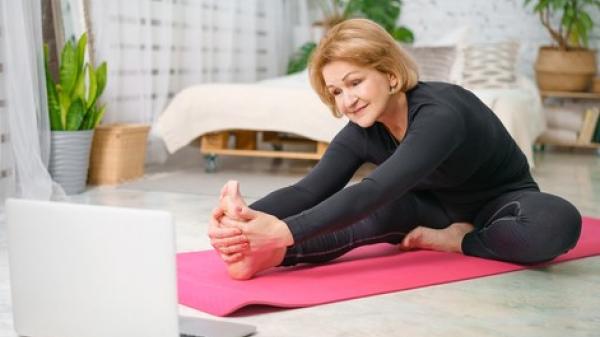
It’s hardly surprising that arthritis is linked with anxiety and depression. It’s tough living with regular pain and fatigue. It can affect work, relationships and many of the things that matter most to you.
Learn more about the positive steps you can take to help stave off or treat anxiety and depression.
Talking to someone you trust can make a big difference
Whether it’s to a relative, friend, partner or healthcare professional, never be afraid to open up about how you’re feeling. Reduced negative thinking can increase the amount of enjoyable activities in daily life.
There are lots of professionals to help you through the tough times, this could be your local GP or someone at beyondblue, SANE or Lifeline. If you think you need it, asking for help could be the most important thing you do today.
Don’t let stress build up
Let’s face it, stress is pretty unavoidable in hectic lives. Add arthritis to the mix of potential worries such as money, work and relationships, and stress is bound to rear its ugly head from time to time.
It’s important to know what really puts pressure on you. Think about ways to avoid those situations occurring in the first place, and the best ways of dealing with them if they do.
Getting your arthritis treated will help your mental health
Pain can add to feelings of anxiety and depression. And there's evidence that high levels of inflammation will increase the amount of chemicals in your blood that make depression more likely and more serious.
If you’re experiencing flares, see your rheumatologist or rheumatology nurse and don’t understate your symptoms to them. If you’re not fine, don’t say you are.
Disease-modifying anti-rheumatic drugs and biological therapies can reduce inflammation and pain. There are good treatment options for axial spondyloarthritis (axSpA) and support is available.
Exercise to release those natural, feel-good chemicals
Regular exercise can help with anxiety and depression. Aerobic exercise, which is anything that makes you at least a bit out of breath, is particularly beneficial. Exercise releases chemicals around the body that are natural painkillers and can lift your mood. It is important that you are assessed by your physiotherapist who will recommend appropriate exercises for you.
Exercise is also good for self-confidence and self-esteem. It’s not always easy but starting off gently and gradually increasing the amount you do can lead to great results.
Try to establish a sleep routine
Establishing a good sleep routine is essential to helping get back on track. Developing a regular sleep time and routine will help to reduce pain. Using a low-dose anti-depressant may help you regulate your sleep. Discuss with your doctor.
Improved sleep will also help pace your activities throughout the day.
Get some vitamin D
The ‘sunshine vitamin’ is good for bone and joint health, and it can help with depression.
On spring and summer days, getting 15 minutes of warm sun on bare skin, such as arms, legs and face will give you your daily dose.
Some people may need to take daily vitamin D supplements in the autumn and winter, or even all year round. Talk to your doctor for advice.
What about medications and mood?
Medication can assist in helping you control your mood but are recommended as a standalone treatment. Medications are most often used to help engage in exercise, activities such as work and social engagements and to get a good night's sleep.
This resource was developed based on the best available evidence. A full list of references is available upon request.









